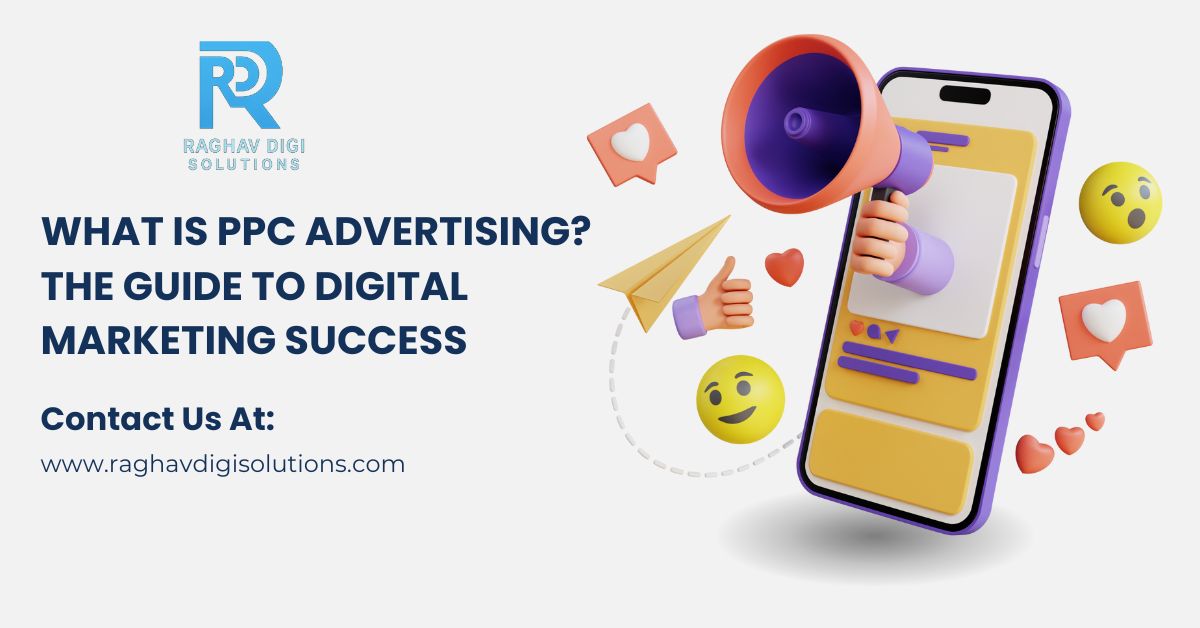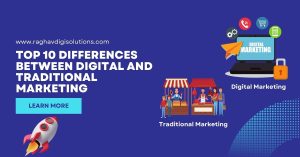Digital marketing has many moving parts, but if you want fast, targeted, and measurable results, Pay-Per-Click (PPC) advertising is your best bet. Whether you’re a business owner, a marketer, or just curious about online ads, this beginner’s guide will walk you through everything you need to know about PPC and how it can skyrocket your digital marketing success. and know What Is PPC Advertising? The Guide to Digital Marketing Success
Understanding PPC Basics
So, what exactly is PPC? Simply put, it’s a model of online advertising where you pay only when someone clicks your ad. Think of it like renting a billboard—but instead of paying for space, you pay when someone actually notices and interacts with it.
How PPC Works
When you run a PPC campaign, your ads enter an auction whenever someone searches for a keyword you’re targeting. The search engine decides whose ad to show based on two things: your bid (how much you’re willing to pay) and your ad’s relevance (measured by quality score).
Key Components
- Keywords: The search terms you’re targeting.
- Ad Copy: The text or visuals that persuade users to click.
- Landing Page: The page visitors land on after clicking the ad.
- Bid Strategy: How much you’re willing to pay per click.
Types of PPC Advertising
Not all PPC ads are created equal. Depending on your goals, you can choose from several types:
- Search Ads – Text ads on search engines like Google or Bing.
- Display Ads – Banner ads on websites.
- Shopping Ads – Product-based ads with images and prices.
- Video Ads – Ads that appear on YouTube or video platforms.
- Social Media Ads – Sponsored ads on Facebook, Instagram, LinkedIn, etc.
Popular PPC Platforms
- Google Ads – The king of PPC, with the largest search market share.
- Microsoft Ads (Bing Ads) – A smaller but cost-effective option.
- Facebook & Instagram Ads – Ideal for brand awareness and targeting specific audiences.
- LinkedIn Ads – Best for B2B marketing.
- Twitter (X) Ads – Good for trending campaigns and engagement.
- YouTube Ads – Perfect for video storytelling and product demos.
Benefits of PPC Advertising
Why should you care about PPC? Here are some reasons:
- Instant traffic & visibility – Unlike SEO, which takes months.
- Budget control – You can start small and scale up.
- Precise targeting – Reach people based on keywords, interests, or behaviors.
- Measurable results – Track clicks, conversions, and ROI in real time.
PPC vs SEO
Many beginners ask: Should I focus on SEO or PPC?
- PPC = Paid, instant results, traffic stops when you stop paying.
- SEO = Free, long-term results, but takes time and effort.
The smart approach? Use both. SEO builds your foundation, while PPC gives you quick wins.
How to Create a PPC Campaign
Here’s a simple step-by-step:
- Keyword Research – Find the terms your audience searches for.
- Ad Copywriting – Create catchy ads that make people click.
- Landing Page Design – Ensure it’s relevant, fast, and convincing.
- Budget & Bidding – Set your max CPC and daily budget.
Understanding Quality Score
Google assigns a Quality Score (1–10) to each keyword based on:
- CTR (Click-Through Rate)
- Ad Relevance
- Landing Page Experience
The higher your score, the less you pay per click. Win-win!
Targeting in PPC
One of PPC’s strengths is precision targeting:
- Location – Show ads only in your city, state, or country.
- Demographics – Target specific age, gender, or income groups.
- Interests & Behaviors – Reach people based on hobbies or past actions.
- Device – Target desktop, mobile, or tablets separately.
PPC Bidding Strategies
- Manual CPC – You control the bids.
- Automated Bidding – Google adjusts bids for you.
- Target CPA (Cost Per Acquisition) – Focus on conversions.
- Target ROAS (Return on Ad Spend) – Aim for profitability.
Common Mistakes Beginners Make
Avoid these traps:
- Skipping negative keywords (words you don’t want your ad to show for).
- Writing boring ad copy.
- Sending users to a weak landing page.
- Not tracking conversions.
Tools for PPC Success
- Google Keyword Planner – For keyword research.
- SEMrush & Ahrefs – For competitor analysis.
- SpyFu – To spy on rival campaigns.
- Google Analytics – To track performance.
How to Measure PPC Success
Keep an eye on these metrics:
- CTR – Are people clicking your ad?
- CPC – How much are you paying per click?
- Conversion Rate – Are clicks turning into leads/sales?
- ROI – Is it worth the investment?
Future of PPC Advertising
The world of PPC is evolving fast:
- AI & Automation – Smarter bidding and targeting.
- Voice Search Ads – Ads tailored for Alexa, Siri, and Google Assistant.
- Personalization – Ads customized for each user.
Conclusion
PPC is more than just paying for clicks—it’s about putting your brand in front of the right audience at the right time. If done right, it can deliver instant traffic, high-quality leads, and a strong ROI. Start small, experiment, and scale as you learn what works.
FAQs
1. What is the difference between PPC and CPC?
PPC is the advertising model, while CPC is the actual cost you pay per click.
2. Is PPC good for small businesses?
Yes! With budget flexibility and precise targeting, even small businesses can compete.
3. How much does PPC cost?
It varies by industry. Some niches pay ₹10 per click, others ₹500+.
4. Can PPC replace SEO?
No. PPC gives instant results, but SEO is essential for long-term success.
5. How long does it take to see results from PPC?
Almost immediately—you can start getting traffic within hours of launching a campaign.
To Know More: Best PPC Services In Sikandra Agra, Affordable Seo Services In Sikandra Agra, Top- Rated PPC Services In Agra




